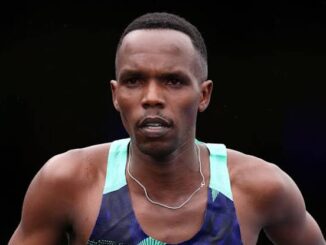
Shelby Houlihan Criticizes Anti-Doping System Amid Ruth Chepng’etich Suspension.
August 5, 2025 — In the wake of Ruth Chepng’etich’s provisional suspension for a doping violation, American middle-distance runner Shelby Houlihan has reignited her criticism of the global anti-doping system, calling it “deeply flawed” and “biased against athletes without resources or political influence.”
Chepng’etich, the former marathon world record-holder from Kenya, was suspended after testing positive for hydrochlorothiazide, a banned diuretic commonly used as a masking agent. The news sent shockwaves through the athletics world, with many questioning how such a high-profile athlete avoided immediate suspension and continued to compete after the March 2025 test.
For Houlihan, the Chepng’etich case is another example of what she calls “systemic inconsistency” in how doping allegations are handled.
> “Some athletes get the benefit of the doubt or lengthy investigations. Others get career-ending decisions in weeks,” Houlihan said in a statement on social media. “The system is supposed to be about protecting clean sport, not selectively punishing athletes based on politics or assumptions.”
Houlihan, a former U.S. Olympian and national champion, was banned in 2021 for testing positive for nandrolone, a prohibited anabolic steroid. She maintained her innocence throughout, arguing that the substance entered her body through contaminated pork in a burrito she ate the night before her test. Despite her defense, the Court of Arbitration for Sport upheld a four-year ban, which expired earlier this year.
> “My case was dismissed without a real investigation into the food source. I had receipts, timestamps, everything. Still, I was treated like a criminal,” she added. “Now we’re seeing other cases where investigations drag on for months, and results are only made public when pressure mounts.”
Houlihan has been a vocal critic of what she describes as a “zero-tolerance policy without zero-error enforcement.” She argues that the World Anti-Doping Agency (WADA) and Athletics Integrity Unit (AIU) often rely on strict liability — where athletes are held responsible for any banned substances in their bodies regardless of intent — without considering the growing risks of food and supplement contamination.
The reaction to Chepng’etich’s suspension has also drawn attention from other athletes. U.S. marathoner Emma Bates, who finished second to Chepng’etich at the 2021 Chicago Marathon, called the situation “a hard pill to swallow,” expressing frustration over the lack of transparency in how anti-doping cases are managed.
> “If the rules aren’t applied fairly across the board, then what’s the point?” Bates wrote online. “We need a system that investigates, not just punishes.”
Houlihan echoed this sentiment, calling for urgent reforms to restore trust in anti-doping governance.
> “We need transparency, accountability, and a standard of proof that doesn’t destroy innocent athletes,” she said. “If we don’t fix this, we’re going to keep losing clean athletes to a broken system.”
With Chepng’etich now provisionally suspended and under further investigation, the case may become a pivotal moment in the ongoing debate over the integrity and fairness of anti-doping enforcement.



Be the first to comment